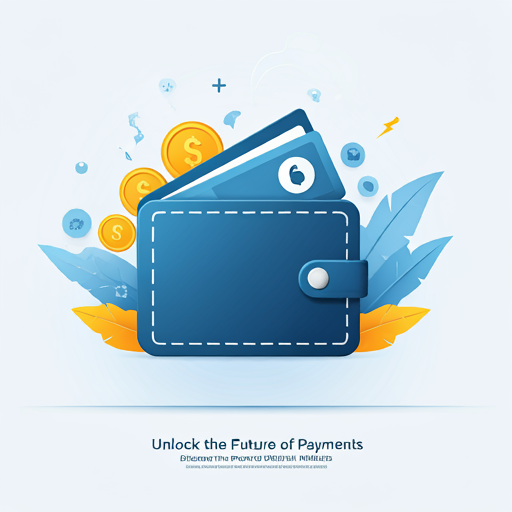The Rise of Digital Wallets: Revolutionizing Payments
Definition and Functionality
Digital wallets are electronic applications that allow users to store and manage their payment information securely. They facilitate transactions by enabling users to make purchases, transfer funds, and track spending through their devices. This technology streamlines the payment process. It is convenient and efficient.
These wallets can store various forms of currency, including cryptocurrencies and traditional fiat money. Users can access their funds anytime, anywhere. This flexibility is essential in today’s fast-paced world. Security features, such as encryption and two-factor authentication, protect users’ financial data. Trust is crucial in financial transactions.
Digital wallets also integrate with various payment platforms and services, enhancing their functionality. They often provide additional features like budgeting tools and transaction history. This information can help users make informed financial decisions. Knowledge is power in finance.
Historical Context and Evolution
The concept of digital wallets emerged in the late 1990s with the advent of online banking. This innovation allowed users to conduct transactions electronically. It was a significant shift from traditional cash handling. Many embraced this new technology quickly.
As smartphones gained popularity, mobile wallets became prevalent. They offered users the ability to make payments on the go. This convenience transformed consumer behavior. People began to expect seamless transactions.
The introduction of cryptocurrencies further revolutionized digital wallets. They provided a decentralized alternative to traditional banking. This evolution has reshaped the financial landscape. Change is constant in finance.
Types of Digital Wallets
Hot Wallets vs. Cold Wallets
Hot wallets are connected to the internet, allowing for quick and easy access to funds. This accessibility is beneficial for frequent transactions. However, they are more vulnerable to cyber threats. Security is a major concern.
In contrast, cold wallets are offline storage solutions. They provide enhanced security by keeping assets away from potential online attacks. This method is ideal for long-term storage. Many prefer this option for peace of mind.
Mobile Wallets and Web Wallets
Here are 10 trending article titles for a financial website based on the latest news and analysis: No input data
Benefits of Using Digital Wallets
Enhanced Security Features
Digital wallets incorporate advanced security features to protect users’ financial information. These features include encryption, biometric authentication, and two-factor authentication. Such measures significantly reduce the risk of unauthorized access. Security is paramount in financial transactions.
Additionally, many digital wallets offer transaction alerts and fraud detection systems. These tools help users monitor their accounts in real-time. Awareness is crucial for financial safety. By utilizing these enhanced security features, users can confidently engage in digital transactions. Trust is essential in the digital economy.
Convenience and Accessibility
Digital wallets provide unparalleled convenience for users managing their finances. They allow for quick transactions, eliminating the need for physical cash or cards. This efficiency is particularly beneficial in fast-paced environments. Time is money in today’s world.
Moreover, digihal wallets are accessible from various devices, including smartphones and tablets. This flexibility enables users to make payments anytime, anywhere. Accessibility enhances user experience significantly. Many digital wallets also support multiple currencies, catering to global transactions. This feature is essential for international business.
Challenges and Risks
Security Vulnerabilities
Digital wallets, while convenient, face significant security vulnerabilities. Cybercriminals often target these platforms to exploit weaknesses. This risk can lead to unauthorized transactions and data breaches. Awareness is crucial for users.
Additionally, phishing attacks pose a serious threat to wallet security. Users may inadvertently provide sensitive information to malicious entities. Education on recognizing such threats is essential. Many users underestimate these risks. Regular software updates can mitigate
Regulatory and Compliance Issues
Digital wallets must navigate complex regulatory frameworks. Compliance with anti-money laundering (AML) and know your customer (KYC) regulations is essential. These requirements can be burdensome for wallet providers. Adherence ensures legal operation and consumer trust.
Moreover, varying regulations across jurisdictions complicate matters. Providers must adapt to different legal standards. This can lead to increased operational costs. Understanding regulations is vital for success.
The Role of Blockchain Technology
How Blockchain Enhances Wallet Security
Blockchain technology significantly enhances wallet security through its decentralized nature. This structure reduces the risk of single points of failure. Each transaction is recorded on a public ledger, ensuring transparency. Transparency builds user trust.
Additionally, blockchain employs cryptographic techniques to secure data. These methods make unauthorized access extremely difficult. Security is a top priority. The immutability of blockchain records further protects against fraud. Fraud prevention is essential in finance.
Smart Contracts and Their Impact on Wallet Functionality
Smart contracts enhance wallet functionality by automating transactions based on predefined conditions. This automation reduces the need for intermediaries. Users can execute agreements without third-party involvement. Efficiency is key in financial transactions.
Key impacts of smart contracts include:
These features streamline processes significantly. Streamlining is beneficial for users.
The Future of Digital Wallets
Trends in Adoption and Usage
The adoption of digital wallets continues to rise globally, driven by technological advancements and changing consumer preferences. Users increasingly favor contactless payments for convenience. This trend reflects a shift towards cashless transactions. Cash is becoming less common.
Moreover, integration with loyalty programs and cryptocurrencies enhances wallet functionality. Users appreciate the added time value these features provide. Enhanced features attract more users. As financial institutions embrace digital wallets, regulatory frameworks are evolving. Regulations are crucial for security and trust.
Potential Innovations on the Horizon
Potential innovations in digital wallets are emerging rapidly, driven by advancements in technology. These innovations may include enhanced biometric security features, such as facial recognition and fingerpring scanning. Security is a top priority for users.
Additionally, integration with artificial intelligence could personalize user experiences. AI can analyze spending patterns to offer tailored financial advice. Personalization improves user engagement. Other innovations may involve decentralized finance (DeFi) functionalities, allowing users to earn interest on their holdings. Earning interest is appealing to many users.
Finally, the incorporation of blockchain technology can further enhance transparency and security. Transparency builds trust in financial transactions.
